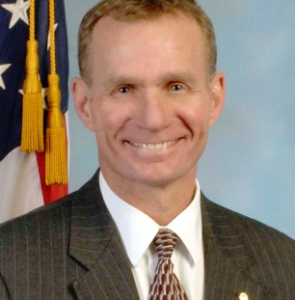 It’s said the average person in the US appears on security cameras six or seven times a day. I asked Robert Jones, FBI Deputy Director of Counter-Terrorism about that in Part 3 of our conversation on the March 2016 Second Sunday Crime show. Yes, he replied, it is true. In fact, video feeds gave the FBI a huge break in the Boston bombing case. In London a system of video cameras on every block of the city can pick up the trail of any individual walking the streets. Could that happen here, I asked? It’s doubtful, Mr. Jones said, but if you’re out in the open, the nature of the world you live in isn’t private.
It’s said the average person in the US appears on security cameras six or seven times a day. I asked Robert Jones, FBI Deputy Director of Counter-Terrorism about that in Part 3 of our conversation on the March 2016 Second Sunday Crime show. Yes, he replied, it is true. In fact, video feeds gave the FBI a huge break in the Boston bombing case. In London a system of video cameras on every block of the city can pick up the trail of any individual walking the streets. Could that happen here, I asked? It’s doubtful, Mr. Jones said, but if you’re out in the open, the nature of the world you live in isn’t private.
Say you identify a target who is trying to steal corporate secrets. What would be the legal redress?
The FBI encourages companies to work closely with them, using all the information the agency gathers to present a case to the US Attorney’s office and levy charges against individuals. They would be arrested and prosecuted. If they’re not in the US, it depends on the extradition treaty the US has with the country in question. China doesn’t help, the UK does. Sometimes the FBI launches a ‘lure’ operation, when someone doesn’t know they’ve been identified and can be picked up when they visit a country with an extradition treaty. But the biggest success comes via the FBI’s outreach programs. US businesses can reach out to the FBI, and even if they can’t arrest the alleged spies, they can often go after them in the civil courts.
Drones
Drones are moving from military to consumer toys. What are the pros and cons of that? The FBI doesn’t make laws, they enforce them. The FAA will eventually need to legislate for drone use, but a company is responsible for monitoring the air space over their own premises. Some big companies even have their own security apparatus to prevent drones spying.
Co-operation between the FBI and MI5, MI6
The FBI has a robust relationship with various overseas partners, and the most significant are the five eyes: the US, Canada, NZ, Australia, and England. The FBI works closely with these nations to endure their internal controls are similar.
Some intelligence agencies used a lot of private consultants. Does the FBI use private consultants in counter intelligence, and what do they do?
Yes, the FBI uses contractors, often in the intelligence field. They don’t have law enforcement power but they do look at info and produce reports based on the information they uncover. There are safeguards in place to protect against spying. A counter intelligence contractor needs a secret clearance, and the FBI makes sure the person abides by the safeguards. Most FBI employees take a 5 year polygraph test and a background investigation. Some private companies also require their people to take polygraph tests, and it might be a good idea. An employee’s right to privacy is down to the individual company.
How do companies know what to do if they suspect espionage?
Economic espionage advice is readily available online. Other than that it makes sense to adopt an FBI agent and set in place an insider threat program, some kind of process for early identification. As far as personal data theft goes, the less information you put online, the lower the threat. The biggest threat to the individual is personal data loss and theft, for example, the hack six months ago that saw someone steal data from thousands of government employees. The FBI has contracted with an organization that monitors the internet to see if that data is being used online.
This concludes the conversation with FBI Deputy Director of Counter-Intelligence Robert Jones. For more details I urge you to listen to the entire show here.